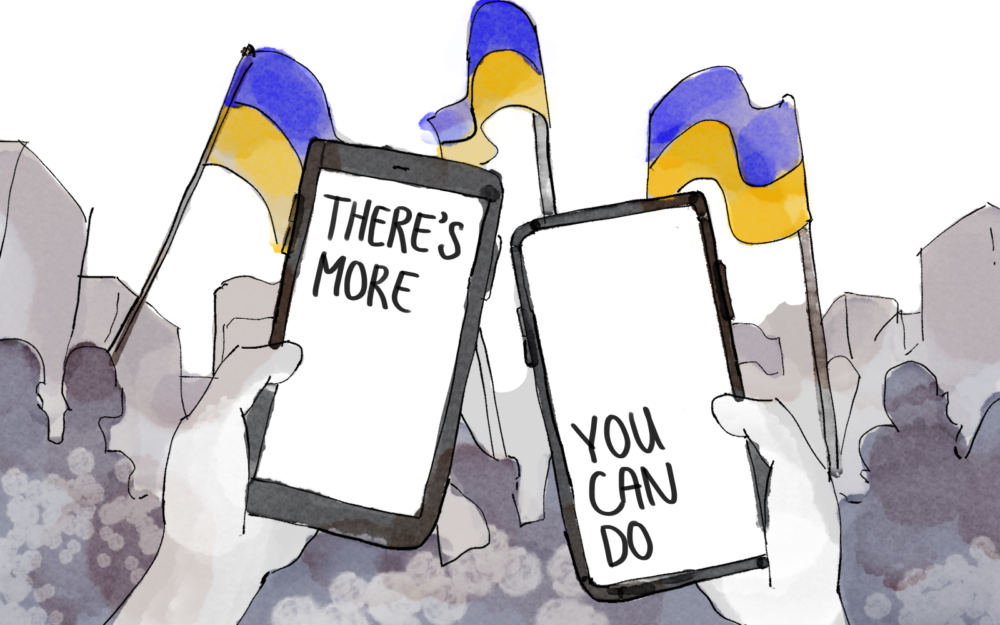
By Rebecca Do
Russia-Ukraine crisis
The ongoing Russian invasion of Ukraine started on Feb. 24. Russian President Vladimir Putin stated that he’d “demilitarize” the country.
Since then, Ukraine’s capital, Kyiv, has faced assault from the Russian Army via land and air. Ukrainian officials have reported increasing attacks on cities from Russia and over one million Ukrainians have fled their homes.
The world has had its fair share of tragic events this decade, many of which caused a great moral divide amongst people. People who sympathize with thoughts and prayers, and those who sympathize with activism. However, activism can be dangerous.
Performative Activism
Make no mistake; There are times that advocating online can work. The Russia-Ukraine crisis is not one of them.
You can’t do anything to save millions of Ukrainian lives. Not with an Instagram post, not with a Twitter thread, not with an online petition. You cannot single-handedly stop a war. You cannot singlehandedly spread all the information the average person needs to know through social media.
A couple of days following the Russian invasion of Ukraine, Actress AnnaLynne McCord posted a video on Twitter in which she presents the hypothetical scenario of her being Putin’s mother. The same Putin whose military is invading, bombing and destroying Ukrainian democracy.
In the video, she is apologetic and recites an original slam poem. “Dear President Vladimir Putin, I’m so sorry I was not your mother. If I was your mother you would have been so loved. Held in the arms of joyous light,” McCord said.
This is an example that shows exactly why you should not be putting your two cents into a topic you know little about.
Displaying compassion and empathy to the man behind the conflict is not a good look, and is dangerous for the people who follow and look up to her.
However, “people are not speaking about the crisis because they are misinformed” and “people are not speaking about the crisis because they don’t care” are two statements that are not mutually exclusive. Guilting people into posting about the war only leads to the spread of misinformation and performative activism.
Spreading incorrect information about the war online is one thousand times more damaging than not speaking on it at all.
You do not need a “hot take” on every topic. The Russia-Ukraine conflict has been going on for ages, and just now has a full-fledged war broken out.
Misinformation is damaging. Take that into account the next time you decide to repost that infographic or put that link in your Instagram bio.
What can you do?
The issue is more complicated than people think. It’s not something that can be resolved by advocating. People shouldn’t feel bad because they don’t possess enough knowledge of the situation— very few people do.
However, some may deem it important to know why exactly this is happening.
If you truly want to educate yourself and others, watch and read live accounts of the war in Ukraine. Journalists risk their lives to provide facts and report live from the country itself; consume first-hand evidence, straight from the source.
Doctors Without Borders is a nonprofit which provides emergency/surgical care, mental health support, and medicine to severely affected areas of conflict. Prior to the war, they established programs for tuberculosis and have supported the COVID-19 crises in Ukraine.
Global Giving is another nonprofit that, with donations to their Ukrainian Relief Fund, will support humanitarian aid in severely impacted communities in the country. Donations will be used for shelter, food, economic assistance, and more.





